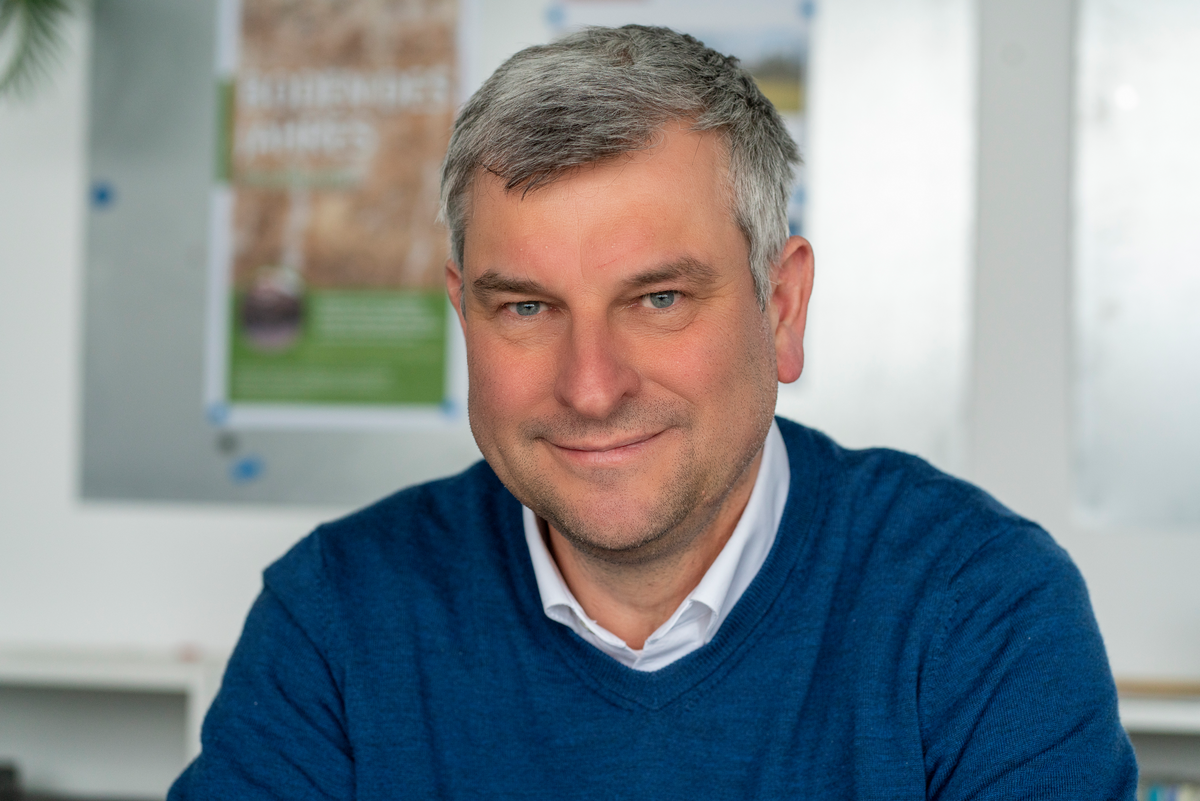"I hope that the GRS will remain open to new ideas"
Professor Raab, with your leadership, the promotion of graduates at BTU was put on a sound basis. What was your motivation for taking on this role?
I was motivated by my early experiences as a postdoctoral researcher at the University of Regensburg. During my time as a postdoc there, I gained important insights into the development of a structured doctoral programme. The structured doctoral programme formed the basis of a DFG Research Training Group. When I arrived at BTU later on, there were still no Research Training Groups. In 2010, as part of the target agreements with the Ministry of Science, Research and the Arts (MWFK), the opportunity arose to set up structured doctoral programmes – then called graduate classes – at the International Graduate School (IGS). In this way, we were able to combine the promotion of young researchers with the creation of critical masses in strategic research areas. The DFG Research Training Group 1913 "Cultural and Technical Significance of Historical Buildings" at Faculty 6 originated from one of these IGS graduate classes. By experimenting with new approaches to promoting graduates in the IGS, a sound foundation was formed for the Graduate Research School (GRS). The IGS is regarded as the precursor of today's GRS.
Are you particularly proud of any milestones in the development of GRS?
There were several important milestones in the development of GRS. In my view, it is important to recognise that GRS has been established as a new overarching structure that is open to all young researchers at BTU. With its funding instruments and qualification programme, it now offers a central structure for promoting graduates at BTU. In my opinion, the establishment of the GRS is one of the most important achievements at our university in recent years.
When you look back on your many years as director of the GRS and the collaboration with early career researchers, are there experiences that are particularly meaningful to you?
Definitely the numerous interactions and discussions with our doctoral researchers and postdocs. I still remember an excursion to Regensburg with the graduates from the IGS. We called it "IGS on Tour". We exchanged ideas with a wide variety of stakeholders in Regensburg, depending on the specialised profile of the respective graduate classes. For example, we visited an Infineon production facility and exchanged ideas with representatives of the local heritage conservation centre. Another example were the "Young Researchers' Days", which we organised in the early days of GRS thanks to EU funding. These events were an excellent opportunity to discuss career paths within and outside academia with our doctoral candidates and postdoctoral researchers. The "Young Researchers' Days" also provided an important platform for introducing GRS as an open organisation for all young scientists.
Where do you see the importance of GRS in promoting young researchers at our university?
In my view, there are two key aspects to highlight here: Firstly, the funding and qualification programmes offered by GRS, which are very well received, by the way. Secondly, GRS has a unique selling point compared to similar centres at other universities, which is particularly evident in the funding instruments. GRS funds are largely used for the direct promotion of young researchers. Both within GRS and in dialogue with the university management and the "Commission for Research, Young Researchers and Technology Transfer", we have always reflected critically on our funding opportunities. The main criterion has always been that the funding schemes should make a substantial contribution to the development of the profile of BTU's key research areas and to increasing the number of doctorates awarded. Funding instruments such as mobility grants or scholarships should primarily provide positive incentives for both young researchers and their supervisors.
Looking to the future, what are your hopes for GRS? Which areas do you see as having important potential?
I hope that the GRS will remain open to new ideas. As the general conditions are constantly changing, it goes without saying that adjustments will always be necessary. This is why, in addition to established funding instruments such as mobility grants or scholarships, there are also completely new funding programmes such as the "Young Investigator Group". It will certainly become even more important in the future to prepare doctoral candidates for careers outside academia. This is already becoming apparent in our region as a result of the economic transformation, for example. I hope that Professor Hübner, as director, and Mr Rode, as manager, enjoy developing GRS further as the most important instrument for promoting graduates at BTU. It makes it easier for me to say goodbye to this task knowing that GRS is in very good hands with them.
Thank you very much for the interview!
Background
Professor Thomas Raab was Scientific Director of GRS from the beginning of 2015 until the end of 2023.
From 2010 to 2014, he was spokesperson for the predecessor organisation, the International Graduate School (IGS). From the very beginning, he worked together with Robert Rode, manager of the GRS and previously coordinator of the IGS. Together they developed the GRS concept, which comprises two central areas of activity: The promotion of young researchers at BTU, for example through mobility grants, scholarships and postdoctoral fellowships. In addition, GRS offers an interdisciplinary qualification programme that is open to all doctoral candidates and postdoctoral researchers at BTU. Following his election as Dean of the Faculty of Environment and Natural Sciences, he handed over the management of GRS at the end of 2023.
About the GRS management
Since the departure of Professor Raab, Professor Michael Hübner, the responsible member of the university management, is in charge of scientific direction of the GRS.

